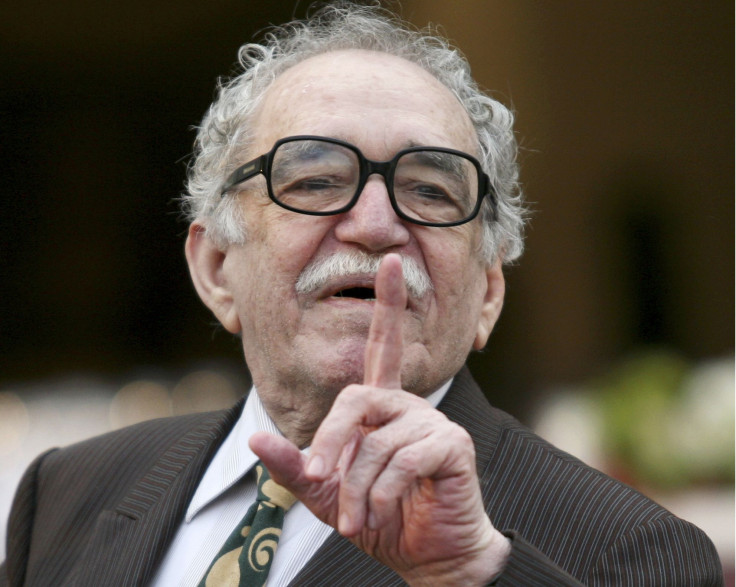Gabriel Garcia Marquez Quotes: 8 Insights About Writing, Power, Love From The Nobel-Prize Winning Novelist On His 90th Birthday

Monday would have been the 90th birthday of late Colombian novelist and journalist Gabriel Garcia Marquez, one of the few Latin American writers to win the Nobel Prize for Literature. Beloved by Latin Americans and affectionately known as Gabo, Marquez was known for his novels that twisted and turned through magical realism, a genre in which metaphysical occurrences happened regularly in otherwise realistic fiction.
Marquez, who died in April 2014, received international acclaim for his long and entrancing novels “One Hundred Years of Solitude,” published in 1976, and “Love in the Time of Cholera,” published in 1985. He won his Nobel Prize in 1982. Many fans from all over the world posted tributes to him on social media Monday.
Marquez was also known for his most insightful, powerful and romantic quotes.
“It always amuses me that the biggest praise for my work comes for the imagination, while the truth is that there's not a single line in all my work that does not have a basis in reality. The problem is that Caribbean reality resembles the wildest imagination."
— From The Paris Review Interviews, Gabriel García Márquez, The Art of Fiction No. 69
"In journalism just one fact that is false prejudices the entire work. In contrast, in fiction one single fact that is true gives legitimacy to the entire work. That’s the only difference, and it lies in the commitment of the writer. A novelist can do anything he wants so long as he makes people believe in it."
— From The Paris Review Interviews, Gabriel García Márquez, The Art of Fiction No. 69
"The more power you have, the harder it is to know who is lying to you and who is not. When you reach absolute power, there is no contact with reality, and that’s the worst kind of solitude there can be. A very powerful person, a dictator, is surrounded by interests and people whose final aim is to isolate him from reality; everything is in concert to isolate him."
— From The Paris Review Interviews, Gabriel García Márquez, The Art of Fiction No. 69
"Age has no reality except in the physical world. The essence of a human being is resistant to the passage of time. Our inner lives are eternal, which is to say that our spirits remain as youthful and vigorous as when we were in full bloom. Think of love as a state of grace, not the means to anything, but the alpha and omega. An end in itself."
— From “Love in the Time of Cholera”
"Wherever they might be they always remember that the past was a lie, that memory has no return, that every spring gone by could never be recovered, and that the wildest and most tenacious love was an ephemeral truth in the end.”
— From "One Hundred Years of Solitude"
“Nostalgia is a great source for literary inspiration, for poetic inspiration.”
— From a New York Times interview, 1988
“I cannot imagine how anyone could even think of writing a novel without having at least a vague of idea of the 10,000 years of literature that have gone before."
— From a New York Times interview, 1996
“It’s enough for me to be sure that you and I exist at this moment.”
— From “One Hundred Years of Solitude”
© Copyright IBTimes 2024. All rights reserved.






















